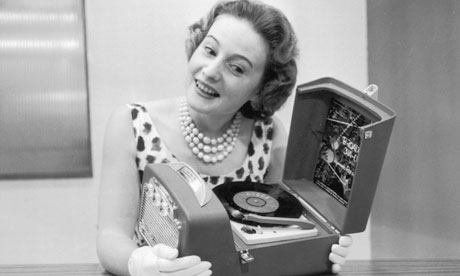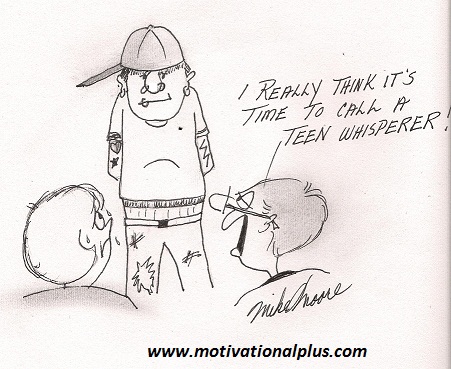Nancy Friday wrote:
“When I stopped seeing my mother with the eyes of a child, I saw the woman who helped me give birth to myself”.
Like all mothers – to us, mum was primarily just our mum.
But of course, she was so much more than that.
Although she was a rather nervous and introverted person, she was also bold and courageous, particularly for her generation.
It’s easy to look at the three of us, and think that we inherited our independence and drive to succeed from Dad. But I think Dad would agree that mum was quietly tenacious, and actually the motivator behind him.
As a teenager, I didn’t know any other mums who holidayed regularly without their husbands, exploring the world of ski-ing, circle dancing and all sorts of other things with people who shared those interests when Dad didn’t.
She went ski-ing behind the Iron Curtain before it came down, going up mountains in Poland, not in cable cars, but by horse and cart and then ski-ing back down.
She spent time in Spain for several summers, helping Spanish business people learn English. She told us that this was the only place she felt she was properly listened to and not interrupted, and sadly I think this was probably true.
Well into her 70s, she surprised and impressed people with her yoga headstands and flexibility.
She travelled the world with Dad, regaling us with stories – for example her hilarious decision when visiting China not to go to the Great Wall, preferring instead to visit a Chinese Tesco, where apparently they sold live frogs!
She taught me to identify garden birds and flowers, although her actual interest in gardening has been inherited by Lucy only.
Mum was horrified by being the centre of attention, so she tended to hide and diminish her talents.
But she was much cleverer than she ever believed.
She was an accomplished musician and as a young child I remember her playing the piano whilst Lucy and I sang Christmas carols.
She was a talented artist and I loved going through her sketch books oohing and aahing whilst she insisted it was all rubbish.
She made Lucy and I beautiful ballgowns worn at Cambridge May Balls and Officer’s Balls – a skill she learnt from her mother who worked as a seamstress for Sir Norman Hartnell.
And as you can see from the photos on the order of service, Mum was beautiful – although she never, ever thought so.
An enduring memory as a child is of watching Mum and Dad leave home for black tie events, Mum in her evening dresses looking stunning and smelling of a wonderful combination of rose scented talcum powder, perfume and Elnett hairspray.
I think Lucy and I at times caused her as much sorrow as joy with our constant challenging and determination to ensure that everyone knew about all our opinions. James was always so much more pragmatic and measured than us – but to be fair he got an easier ride, being the youngest and the prodigal son.
But it’s only really when you have your own children that you understand what it is to be a parent. How complex, terrifying and utterly wonderful it is.
I was the first of the three of us to produce grandchildren – first George, who is joining us by the wonders of the internet from his home in Sydney, and then Anna.
Lucy, James and I have talked about how having our own children made us suddenly realise that Mum must love us with the same passion and willingness for self sacrifice with which we love our own children, and I think that was part of a new understanding between us all.
Mum loved giving us advice, and on an incredibly wide range of subjects.
If you told her you were considering a purchase, she would do incredibly extensive and meticulous research on it for you – whether you wanted her to or not.
Some of the advice she gave was kind of incomprehensible though – like the time when I was about to 11 and going to stay with my friend Jodie and she told me sternly that I must not inhale my deodorant. I had no idea why, but for years I diligently leaned away and held my breath when spraying deodorant under my arms, until I realised that she was actually warning me against inhaling and abusing aerosols – something which I had absolutely no knowledge of at the time!
But some of the unsolicited advice could be irritating.
On one visit to stay with us in Sydney, having endured a long lesson on how to use my own washing machine – which as a woman then in my forties I used every day of the year, quite effectively I thought, and without need for commentary or guidance – I lost my temper with her.
Dad took me aside later and said:
“Wendy – it’s how she loves you. You have to stop seeing it as criticism and start seeing it as Mum just really wanting to help you, because she loves you”.
He was so right.
We all love differently, and Mum wasn’t given to overt expressions of love or hugs and cuddles. But she was going to make sure me and her grandchildren had very clean, fresh clothes.
With a parent who is maybe less demonstrative, you especially treasure those loving moments. Mum would be surprised I think by some of my treasures. For example, aged 19, in my miserable university house I phoned her with a miserable cold and had a grizzle. A few hours later I saw her pull up outside with a hot water bottle, various cold remedies, an extra duvet and a sweatshirt covered in pandas. I’ve never worn the sweatshirt because it’s a crime against fashion. But I still have it – because under each gaudy panda is a love heart and the words ‘I love you’.
Of course, all the grandchildren loved her – George and Anna, Katy and Emily, Lewis, Samuel and Poppy. They loved her stories, her adventures and her quirky gifts.
It was clear that nothing made mum happier than having all of the grandchildren around her, and over time she morphed more into being Granny than she was Mum.
Grandmothers should not have favourite grandchildren – but Mum did. Her devotion to Lewis was obvious to everyone and begrudged by no-one. Lewis is everyone’s favourite.
As parents, we would lay down our lives to protect our children from heartbreak, and I’m glad that of the three of us, James was the one geographically closest and most able to benefit from her love and attention.
We’ve had many wonderful visits from Mum and Dad to Australia over the years.
However, the last time she visited us – in 2017 – she already did not know who I was and believed she had not had any children.
At first I was heartbroken.
But then I discovered that if I called ‘Mum’ from another room, she would appear. And if I asked her if she loved me she would respond ‘yes’ without hesitation.
It taught me a new thing about being a parent – that your love for your children is so deep and so enduring that it outlives memory.
Lucy, James and I will spend the rest of our lives finding ourselves spontaneously thinking ‘oh I must tell Mum about that’ or ‘Mum would love that’ or ‘I’ll ask Mum about that’.
We were lucky to have her and we will miss her forever.











You must be logged in to post a comment.